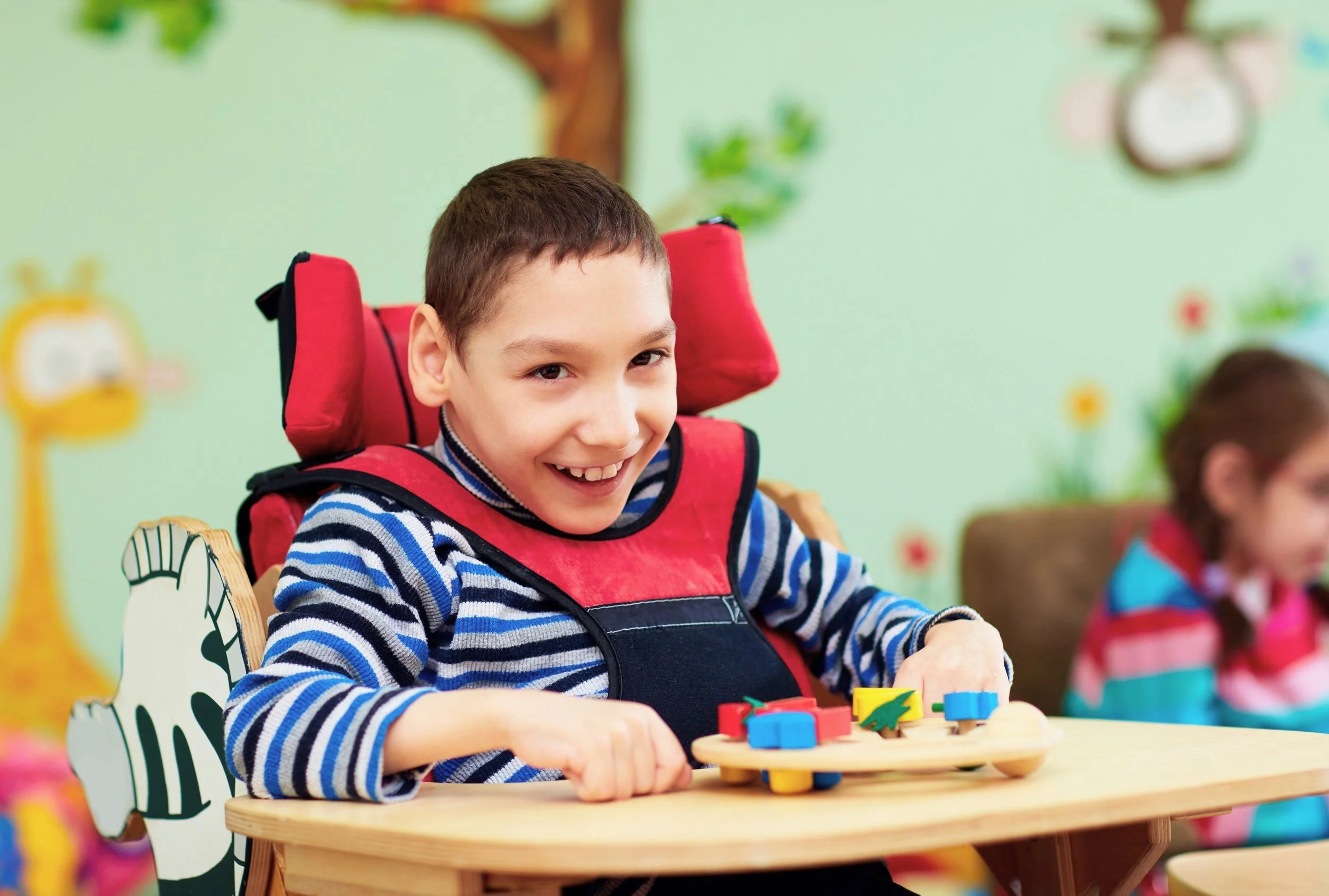Positive Behaviour Support (NDIS Service)
What is Positive Behaviour Support?
Positive Behaviour Support is delivered under Improved Relationships / Behaviour Support NDIS funding and aims to assist individuals to improve their behavioural functioning and decrease the intensity and/or frequency of behavioural concerns. Servicing is focused on gaining a better understanding of the function of a participants behaviours and implementing more appropriate replacement behaviours to meet their needs. Behaviour Support intervention also has a strong emphasis on improving a participants quality of life by encompassing all areas of functioning and collaborating with the entire support network.
Restrictive Practices are also assessed within Behaviour Support where appropriate protocols are created and implemented with service providers to ensure they abide by NDIS guidelines. Servicing focuses on reducing any unnecessary or unauthorised practices, and introducing alternative strategies in order to fade out the use of practices where possible.
Who would benefit from Positive Behaviour Support?
Aggression towards others (physical or verbal)
Self-harm (intentional or unintentional)
Suicidal ideation or attempts
Property damage
Absconding/wandering
Inappropriate social behaviours
Inappropriate sexualised behaviours
Substance abuse
Positive Behaviour Support is beneficial for participants who are engaging in behaviours that place themselves or others at risk of harm, that impact the participants ability to engage with others or the community, or any other behaviour that impacts their overall quality of life. Examples of challenging behaviours are listed below:
Individuals of any age can benefit from Behaviour Support servicing as intervention and strategies are tailored to each person depending on their capacities, goals and interests. We can work with participants who have particularly complex behavioural presentations, such as those with histories of trauma and criminal behaviour. Behaviour Support is also a beneficial service for those who have no current challenging behaviours, though would like assistance preventing historical behaviours from reoccurring. For example, participants who have previously engaged in substance abuse or criminal behaviour and require assistance preventing relapse.
Stealing
Hoarding
Dangerous travel behaviours
Sensory related behaviours
Compulsive or binge eating
Unsafe food behaviours
Pica (eating non-food items)
What can you expect?
Behaviour Support Assessment
An Initial Behaviour Support Assessment will be conducted with you and any key supports you wish to attend (e.g. guardian, parents, family members, advocate, support staff or key worker, teacher). During this assessment, we will ask a series of questions about different aspects of your life so that we can get to know you. This will include things like your interests, goals, historical and family background, diagnoses and health. We will also complete a Functional Behaviour Assessment during this initial appointment where we will talk about your challenging behaviours and a plan to assist you with these.
Observation (where required)
It may be necessary to complete one or more observations to assess your behavioural concerns and overall presentation in a specific environment, such as school or day program. The need for any observations will be confirmed during the Initial Assessment.
Behaviour Support Plan or Recommendation Report
Following assessment and any observations, we will typically write a Behaviour Support Plan (BSP) detailing important information about your diagnoses, presentation, behavioural concerns, strategies, and further recommendations. This report will also include information about any Restrictive Practices in place. If we are unable to complete a BSP, for example due to a lack of available funding, we can write a Recommendation Report instead. This will outline your behavioural concerns, goals, and further recommendations for servicing and appropriate funding.
Implementation and Training
Following the completion of a Behaviour Support Plan, we will speak with you and your supports about a plan for implementation and training. This can include training in the behaviour strategies and any Restrictive Practices for all necessary supports such as implementing providers, families and parents, teachers, carers, support staff, and other important supports. This training can occur in a variety of locations such as a residence, group home, day program, respite, school, or place of employment. One to one intervention sessions will also be provided to the participant, where appropriate, focused on relevant skill building. This may include skill building in emotional regulation, social skills, functional communication, relaxation and mindfulness, or distress tolerance etc.
Referral Types and Cost
Positive Behaviour Support utilises Improved Relationships / Behaviour Support NDIS funding and is charged at the NDIS specified rate of $232.99/hour for Specialist Behavioural Intervention Support and Behaviour Management Plan Including Training in Behaviour Management Strategies. The type of funding provided will be specified in the participant's NDIS Plan where they may receive one or both types of funding depending on their needs. Travel for appointments is charged at $116.49/hour.
The following referral types are available for Behaviour Support:
Development of a Behaviour Support Plan (BSP) only
Development and Implementation of a BSP
Implementation of a BSP developed by another provider (within 12 months of creation)
Development of a Recommendation Report only
Note: A Behaviour Support Plan will need to be completed if Restrictive Practices are being implemented, and/or if specific funding has been provided in the NDIS Plan for one to be completed.




